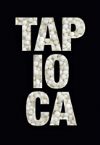|
ESL Forum:
Techniques and methods
in Language Teaching
Games, activities
and teaching ideas
Grammar and
Linguistics
Teaching material
Concerning
worksheets
Concerning
powerpoints
Concerning online
exercises
Make suggestions,
report errors
Ask for help
Message board
|
ESL forum >
Grammar and Linguistics > Would vs Should in conditionals
Would vs Should in conditionals
|

ninon100

|
Would vs Should in conditionals
|
|
Dear colleagues, is there any difference in meaning or frequency of use? If I knew about it, I wouldn �t ask you. If I knew about it, I shouldn �t ask you. What �s used more often in your country? Is it a question of old/modern use nowadays? Please help :) Thanks in advance. |
29 Nov 2015
|
|
|
|

Mariethe House

|
|
Dear ninon You should watch it If I were you, I would watch it!  PS I guess Almaz , our grammar specialist,will give you more information when he�s awake  |
29 Nov 2015
|
|
|

ninon100

|
|
Well, thanks for your comment, but the video doesn �t explain this particular case. |
29 Nov 2015
|
|
|

cunliffe

|
|
The natural utterance would be: �If I knew about it, I wouldn �t ask you. � This implies volition - if I knew about it, I wouldn �t really be choosing to ask you. � Using �shouldn �t � pertains to correct behaviour. As in, asking you would not be the right thing for me to do and that is not what is implied here. Using �should� in this sense, is, as you suggest, a bit outdated.
|
29 Nov 2015
|
|
|

Tapioca

|
Nowadays, it �s true that we tend to reserve �should � and �shouldn �t � for talking about advice (and as Lynne said, correct behaviour for example). But it may be that these two examples are not about any difference in meaning, but only what is modern common usage.
So, for example, "I shouldn �t wish to disturb you" and "I wouldn �t wish to disturb you" are identical in meaning, but the first is seen as more old fashioned and literary.
If your students read Jane Austen, they might very well see �If I knew about it, I shouldn �t ask you. � It �s genteel and (to me anyway) quite attractive, but it could easily confuse a language student, so I would stick to teaching your first sentence. :-)
Tap |
29 Nov 2015
|
|
|

cunliffe

|
|
Well put, Tap; that usage is outdated and yes, would seem very genteel...What a lovely old word! |
29 Nov 2015
|
|
|

ohermann

|
|
Tap, do you mean it is the same or similar as the outdated usage of shall in the first person in the future tense?
|
29 Nov 2015
|
|
|

Tapioca

|
|
Hi Oto, yes I guess it �s similar to shall and will in first person statements about the future. Very few people use shall now in that context. In the past some books would argue that there were differences between them, but most people used them interchangeably. In fact the last time I think I saw it used outside of a question was in a contract. Although it was third person, it still looked like it belonged to another age. Lawyers seem to love hanging on to archaic vocabulary in case someone moves the semantic goalposts and it can result in very inelegant language. :-( Tap |
29 Nov 2015
|
|
|

yanogator

|
|
Yes, Oto, since "should" and "would" are the past and conditional forms of "shall" and "will", that �s exactly what it is. Bruce |
29 Nov 2015
|
|
|

ninon100

|
|
Thanks everyone, that settles it. A little story from my student past: About 20 years ago I was studying this will/shall difference and was having a hard time telling the difference. That �s why I asked a British native speaker: How will you say: "I will..." or "I shall"? The reply was fantastic. I still quote it to my students: "I will say "I shall". Curtain falls :) |
30 Nov 2015
|
|
|